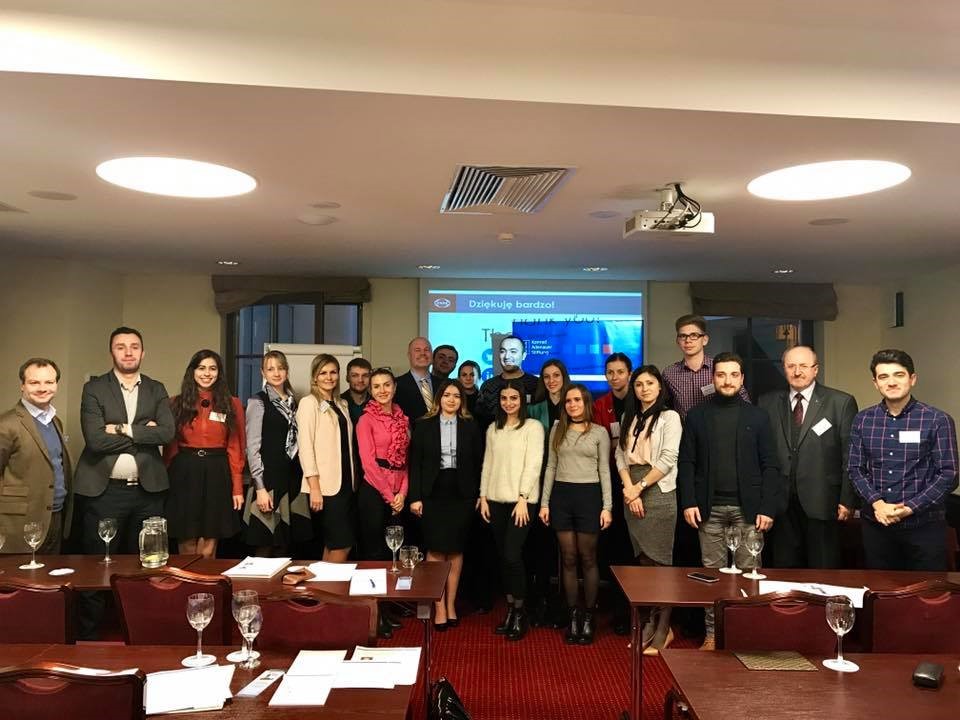Dr. Christopher A. Hartwell: “A world of populism ignores tending to institutions and instead tries to destroy them or harness existing ones for nefarious ends”
On December 10, 2016, Dr. Christopher A. Hartwell, President of CASE, spoke on the institutional dimension of economic integration during the international conference “The European Union's Eastern Neighborhood: Chances and Perspectives” organized by the Konrad Adenauer Foundation in Vilnus, Lithuania.
Dr. Hartwell discussed the current state of play in the European economic integration. The decades- long process of integration in Western and Central Europe has been undermined by political uncertainty. The triumph of populism and euroskepticism has led to a halt to integration or even backtracking. In this context, Brexit has only been another manifestation of continuing mistrust in the EU.
On the other hand, Dr. Hartwell pointed out, integration in Eastern Europe and the former Soviet Union has greatly accelerated in recent years. In a relatively short span of time, the Eurasian Economic Union has made great strides in terms of open borders, trade, and capital flows amongst members. Unfortunately, the EaEU has not proven a reason for its existence and it is not clear whether it will be able to provide much-needed structural reforms in the region. The Eurasian Union is likely to become an extension of Russian practices instead of a liberal experiment.
The breakdown of integration is now coinciding with and contributing to institutional regression. As the countries of Western and Central Europe have turned inward, they are eschewing the institutions that accompanied growth and liberalization. Such a development will dissipate growth quickly as productivity and innovations require an appropriate institutional structure. The progressive breakdown of integration will lead to the erection of barriers as countries use trade as a weapon, he noted.
Dr. Hartwell remarked that “a world of populism ignores tending to institutions and instead tries to destroy them or harness existing ones for nefarious ends.” The election of Donald Trump to the presidency brings further uncertainty to the rules of the game in global trade (already endangered by Russia under Vladimir Putin) as well as to the future of broader economic integration. Trump’s presidency calls into question global trade deals such as TPP or TTIP.
Dr. Hartwell turned to discussing a possible role for regional integration in reversing the trend of institutional regression across Europe. He noted that regional integration can create opportunities where unilateral action is politically unfeasible. Dr. Hartwell suggested a need to think smaller in terms of “regions” – to focus less on the big idea of grand, “ever-closer union”, and more on the local or cross-border facets of integration, allowing for cross-bloc regional integration, e.g. Poland-Belarus or Kazakhstan-China. He also recommended that countries should concentrate on key institutions, such as property rights and trade, which are the key for creating a favourable environment for productivity, innovation and growth.
According to dr. Hartwell, renewed regional integration could help to push institutional progress, so long as it is a liberal integration. In conclusion of his speech, he underlined a need to substantially re-think current ideas of integration to include what can be done at the subnational and cross-border level, to reinvigorate liberal and pro-growth integration at the national and supra-national level and, finally, to build bridges, not barriers.

